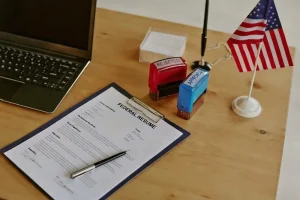The CAR method resume strategy is one of the most effective ways to present your professional achievements in a results-driven, compelling format. CAR stands for Challenge-Action-Result, a framework commonly used in behavioral interviews but equally powerful on resumes. By showcasing how you handled challenges, took action, and achieved measurable outcomes, you give recruiters clear proof of your impact.
This guide will walk you through how to apply the CAR method to your resume, provide over 15 real-world before-and-after examples across various industries, and share customizable templates to boost your application success rate.

What Is the CAR Method on a Resume?
The CAR method breaks down your work achievements into three critical parts:
- Challenge: What problem, task, or responsibility did you face?
- Action: What did you specifically do to address it?
- Result: What was the measurable outcome or benefit of your action?
Using this method ensures your resume is not a list of duties but a persuasive showcase of your contributions.
How to Apply the CAR Method to Your Resume
Follow these steps to rewrite your experience section using the CAR method:
1. Identify Key Achievements
Reflect on your previous roles and pinpoint 3–5 major accomplishments per job. Focus on scenarios where you added value, solved problems, or led initiatives.
2. Break Each Story into CAR Elements
For each achievement, jot down:
- The Challenge you faced
- The Action you took
- The Result you achieved
3. Craft Concise Resume Bullets
Convert your CAR breakdowns into single, impactful bullet points. Use strong action verbs and quantify results when possible.
4. Align with the Job Description
Tailor your CAR statements to match the skills and priorities listed in the job ad. This increases your chance of passing applicant tracking systems (ATS).
15+ CAR Method Resume Examples by Industry
Marketing
Before: Managed social media channels.
After: Increased Instagram engagement by 45% in 6 months by launching a weekly user-generated content campaign.
Sales
Before: Responsible for client accounts.
After: Revived dormant client accounts, leading to $1.2M in renewed contracts within 8 months.
Customer Service
Before: Answered customer queries.
After: Resolved 98% of inquiries on first contact by launching an internal FAQ system.
Software Engineering
Before: Developed internal tools.
After: Built a CI/CD pipeline reducing deployment time by 60%, improving engineering velocity.
Human Resources
Before: Conducted employee onboarding.
After: Reduced onboarding time by 35% by redesigning the training program and creating an interactive e-learning module.
Finance
Before: Prepared monthly reports.
After: Automated monthly financial reporting, reducing preparation time from 5 days to 2 hours.
Project Management
Before: Oversaw project timelines.
After: Delivered a $500K IT project 3 weeks early by restructuring the agile workflow and eliminating bottlenecks.
Healthcare
Before: Monitored patient charts.
After: Improved patient safety by 30% by introducing an automated alert system for critical lab results.
Education
Before: Taught science curriculum.
After: Boosted student test scores by 20% through the implementation of a flipped classroom model.
Legal
Before: Reviewed contracts.
After: Reduced contract processing time by 40% by standardizing templates and introducing e-signature workflows.
Logistics
Before: Managed warehouse inventory.
After: Decreased stock discrepancies by 25% by implementing barcode scanning and inventory audits.
Hospitality
Before: Supervised front desk operations.
After: Increased guest satisfaction scores by 15% by training staff on a new customer service protocol.
Nonprofit
Before: Planned fundraising events.
After: Raised 60% more funds YoY by launching a hybrid fundraising campaign combining online and in-person outreach.
Government
Before: Managed community programs.
After: Improved program reach by 40% by partnering with local organizations and launching targeted awareness campaigns.
Design
Before: Designed marketing materials.
After: Increased client conversion rates by 30% by redesigning brand identity and marketing collateral.
Engineering
Before: Maintained plant machinery.
After: Reduced equipment downtime by 35% by introducing predictive maintenance systems.
CAR Method Resume Templates by Job Role
Template: Marketing Manager
- Challenge: Brand engagement was declining.
- Action: Launched a new influencer program.
- Result: Increased engagement by 50% and sales by 20% in Q2.
Resume Bullet: Initiated influencer strategy that grew engagement by 50% and boosted Q2 sales by 20%.
Template: Software Engineer
- Challenge: Manual QA delays.
- Action: Developed automated testing scripts.
- Result: Reduced QA time by 70%.
Resume Bullet: Built automated QA suite cutting testing time by 70%, accelerating feature delivery.
(Include 5+ role-specific templates covering HR, sales, education, and operations.)
Common Mistakes to Avoid When Using the CAR Method
- Being too vague: Use numbers and specifics to give your achievements weight.
- Focusing only on actions: Without results, your actions lose impact.
- Using generic language: Avoid buzzwords and make your bullet points unique.
- Overstuffing with jargon: Keep it understandable for recruiters and hiring managers.
- Forgetting relevance: Tailor each bullet to the job you’re applying for.
Maximize Your Resume’s Impact with CAR
The CAR method isn’t just about better writing—it’s about proving your value. By framing your experience through the lens of real problems you solved and outcomes you drove, your resume becomes a tool of persuasion, not just documentation.
Ready to Transform Your Resume?
Unlock the Power of Results-Driven Storytelling
Want help turning your work history into a competitive edge? Our resume experts specialize in CAR-based resumes that get noticed. Get a free resume review and start winning interviews.
Frequently Asked Questions
What is the CAR method resume strategy?
The CAR (Challenge-Action-Result) method is a way of structuring resume bullets to highlight achievements rather than responsibilities.
Is the CAR method good for ATS?
Yes, CAR-based bullet points are ATS-friendly because they include keywords and are highly relevant to job descriptions.
Can I use the CAR method for a career change?
Absolutely. It helps show transferable skills and measurable impact across industries.
How many CAR examples should I include?
Aim for 3–5 strong CAR-based bullets per role, focusing on quality over quantity.
Should I use the CAR format in cover letters too?
Yes. It also strengthens your narrative in cover letters and interviews.








